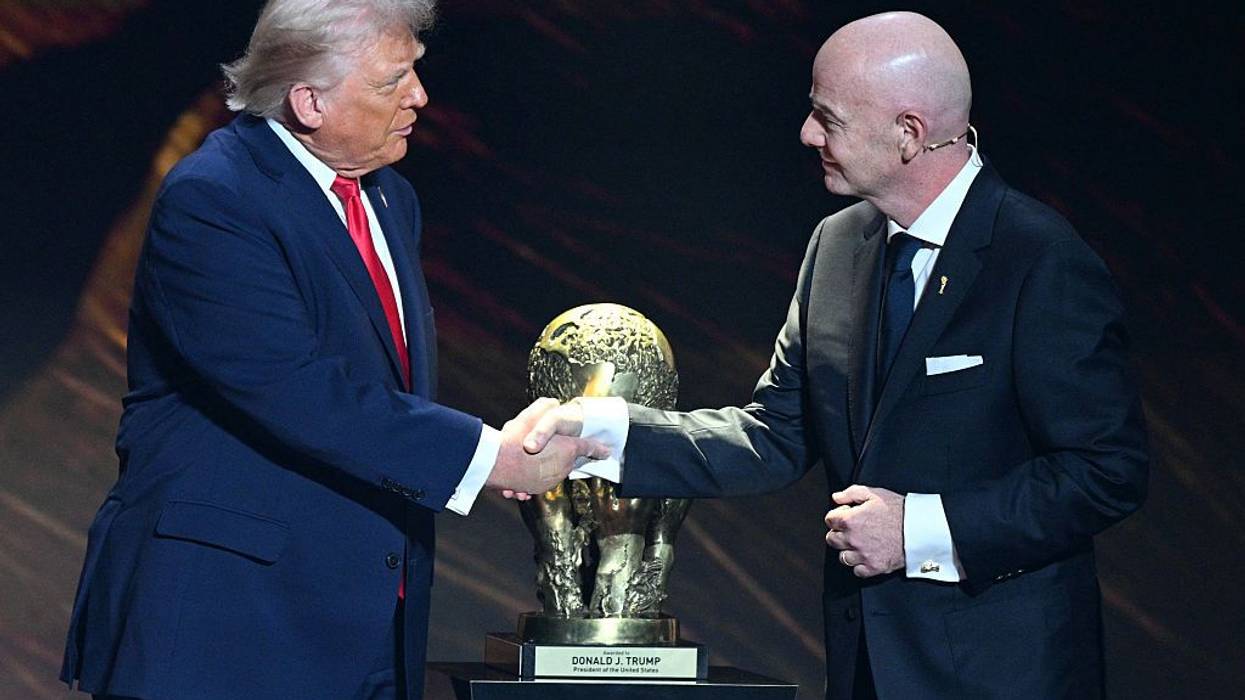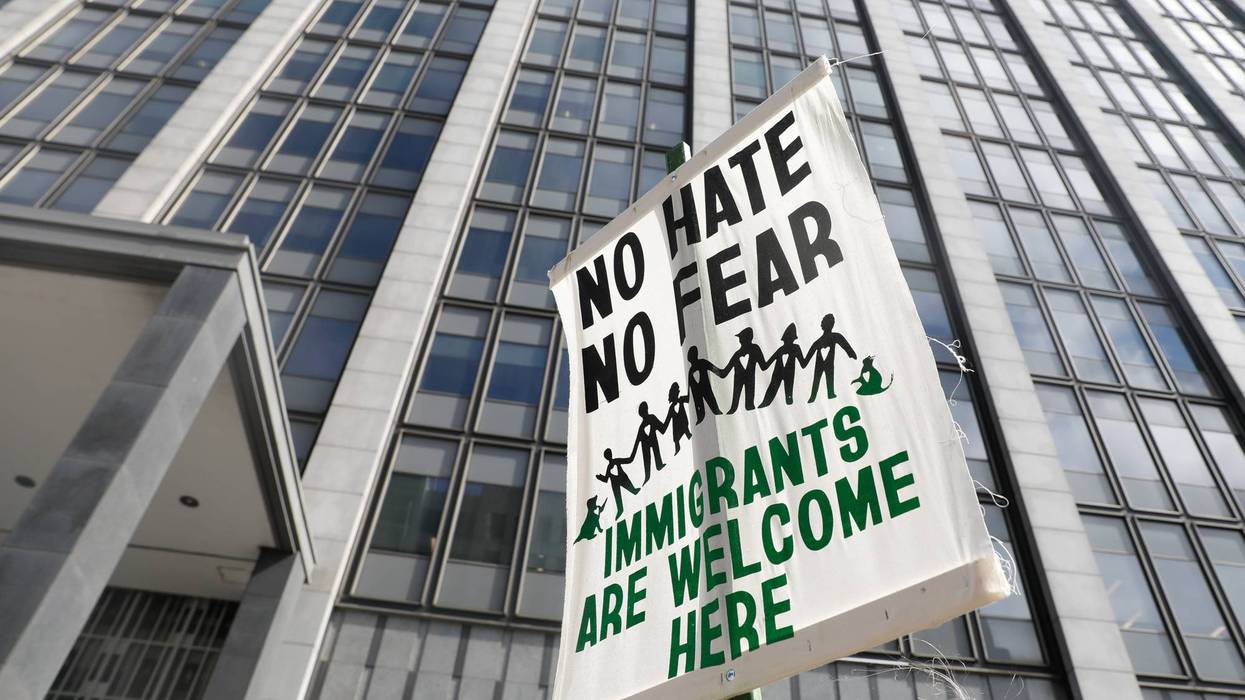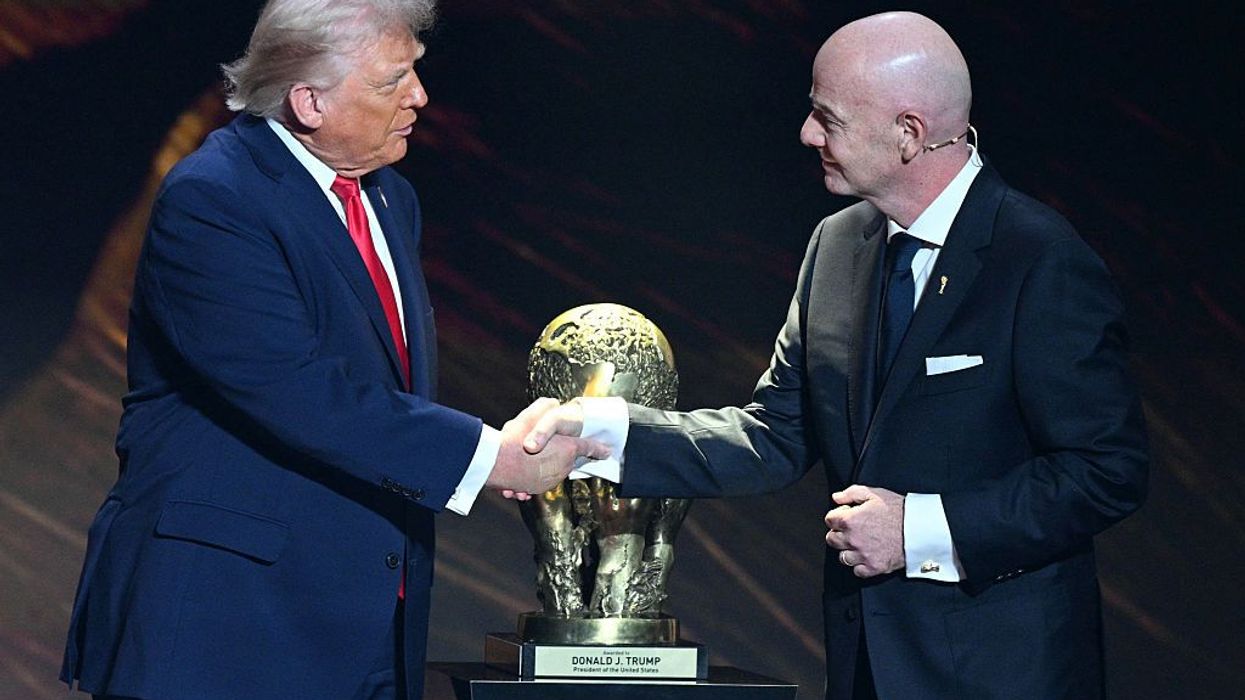FIFA Must Revoke Trump's Peace Prize
If a government can pressure a global sports institution into legitimizing its leader under the banner of peace, then global civil society must be capable of compelling that same institution to correct its course.
In December, US President Donald Trump was awarded FIFA’s newly created “FIFA Peace Prize–Football Unites the World” by FIFA President Gianni Infantino. The decision immediately sparked disbelief and criticism worldwide, raising a fundamental question: What does FIFA mean by peace?
If football is truly meant to unite the world, then this prize—and the process that produced it—must be seriously reconsidered.
The awarding of the Peace Prize did not emerge from a transparent or democratic process. It reflects a broader pattern in which the Trump administration has exerted political and diplomatic pressure on international institutions to secure legitimacy and public endorsement. In other words, bullying. FIFA, despite its claims of neutrality and independence, appears to have yielded to that pressure.
But power imposed through coercion can be reversed through organized, collective, nonviolent action. If a government can pressure a global sports institution into legitimizing its leader under the banner of peace, then global civil society must be capable of compelling that same institution to correct its course. It is not about punishment or humiliation. It is about legitimacy.
Peace Cannot Be Performed
The United States’ current posture toward the rest of the world—marked by sanctions, coercive diplomacy, military threats, and disregard for international norms—stands in open contradiction to the values the Peace Prize claims to represent. One cannot credibly speak the language of peace while practicing domination.
Revoking this prize would send a clear message: Peace is not a public-relations exercise, nor a political trophy extracted through pressure.
When intimidation succeeds without challenge, it becomes precedent. When it is challenged collectively and nonviolently, it becomes brittle.
Revoking this prize would send a clear message: Peace is not a public-relations exercise, nor a political trophy extracted through pressure.
A World Cup Under Question
This controversy unfolds as the 2026 FIFA World Cup approaches. Scheduled from June 11 to July 19, it will be the first-ever 48-team tournament, with 104 matches across 16 cities, 11 of them in the United States, the others in Canada and Mexico.
International fans, activists, and political figures are questioning whether the current US political climate—particularly immigration enforcement practices, travel restrictions, and border policies—makes the country a safe and welcoming host for a global celebration meant to unite humanity.
Calls to boycott the 2026 World Cup are spreading across social media, as supporters report canceled travel plans; withdrawn ticket purchases; and growing fears of arbitrary detention, visa denials, and hostile treatment at borders. Human rights organizations have repeatedly warned about detention practices and the erosion of civil liberties—concerns that take on heightened urgency when millions are expected to cross borders for a global event.
A Nonviolent Proposal for a Global Reset
If there is one nonviolent action in 2026 with the potential to shift global consciousness, it is an international campaign demanding accountability from FIFA itself.
Such a campaign could call for:
- The revocation of the FIFA Peace Prize awarded to Donald Trump;
- A one-year postponement of the 2026 World Cup; and
- The relocation of the tournament to a coalition of African host countries—such as South Africa, Morocco, Egypt, and Algeria—regions with deep football traditions and long-standing exclusion from global sporting power.
FIFA is not a neutral body floating above politics. It is a global institution with 211 member associations, whose decisions reflect values, alliances, and power relations. What FIFA chooses to reward—and whom it chooses to honor—sends a message to billions.
Broadcasters: Withdrawing the Economic Consent
One of the most powerful nonviolent levers lies beyond stadiums and borders: broadcasting. The World Cup exists not only as a sporting event, but as a global media product. Television networks and streaming platforms pay billions in licensing fees that finance FIFA’s operations. Without those fees—and without audiences—the tournament loses its economic foundation.
A coordinated nonviolent campaign could therefore call on broadcasters to:
- Suspend World Cup coverage;
- Refuse to pay licensing fees while FIFA legitimizes coercive political power under the banner of peace; and
- Publicly explain their ethical position to viewers, advertisers, and citizens.
This action would not target players, fans, or workers. It would target the financial and symbolic infrastructure that allows FIFA to operate without accountability. This is not censorship—it is ethical refusal.
A Universal Campaign: Social Media as Nonviolent Infrastructure
For such a campaign to succeed, it must be global, visible, and coordinated. That is why social media is not secondary—it is essential. Social media platforms are today’s nonviolent infrastructure. They allow millions of people to act together across borders, languages, and cultures without centralized control. When used strategically, they transform isolated actions into universal pressure.
A global campaign could:
- Coordinate shared messages, visuals, and hashtags across continents;
- Amplify testimonies from fans, players, journalists, and human rights advocates;
- Expose contradictions between FIFA’s rhetoric and its actions in real time; and
- Apply sustained public pressure on FIFA leadership, broadcasters, sponsors, and advertisers.
This is how nonviolent movements grow: through visibility, participation, and persistence—until silence becomes impossible.
In order to succeed, however, this must be more than a media moment. It must become a grassroots nonviolent movement.
Football clubs, supporters’ associations, players, national federations, and fans everywhere should be called upon to stand—not against the sport, but for human dignity. This is about withdrawing consent from illegitimacy and restoring meaning to the game. Football has always been more than a game. It reflects who we are—and who we choose to become.
After all, people are not football fans first. They are human beings first.
The question now is simple: Will FIFA continue to serve power—or will it revoke the Peace Prize and reclaim the game for humanity?
This article was first published in English on Pressenza and is now available in: Spanish.


